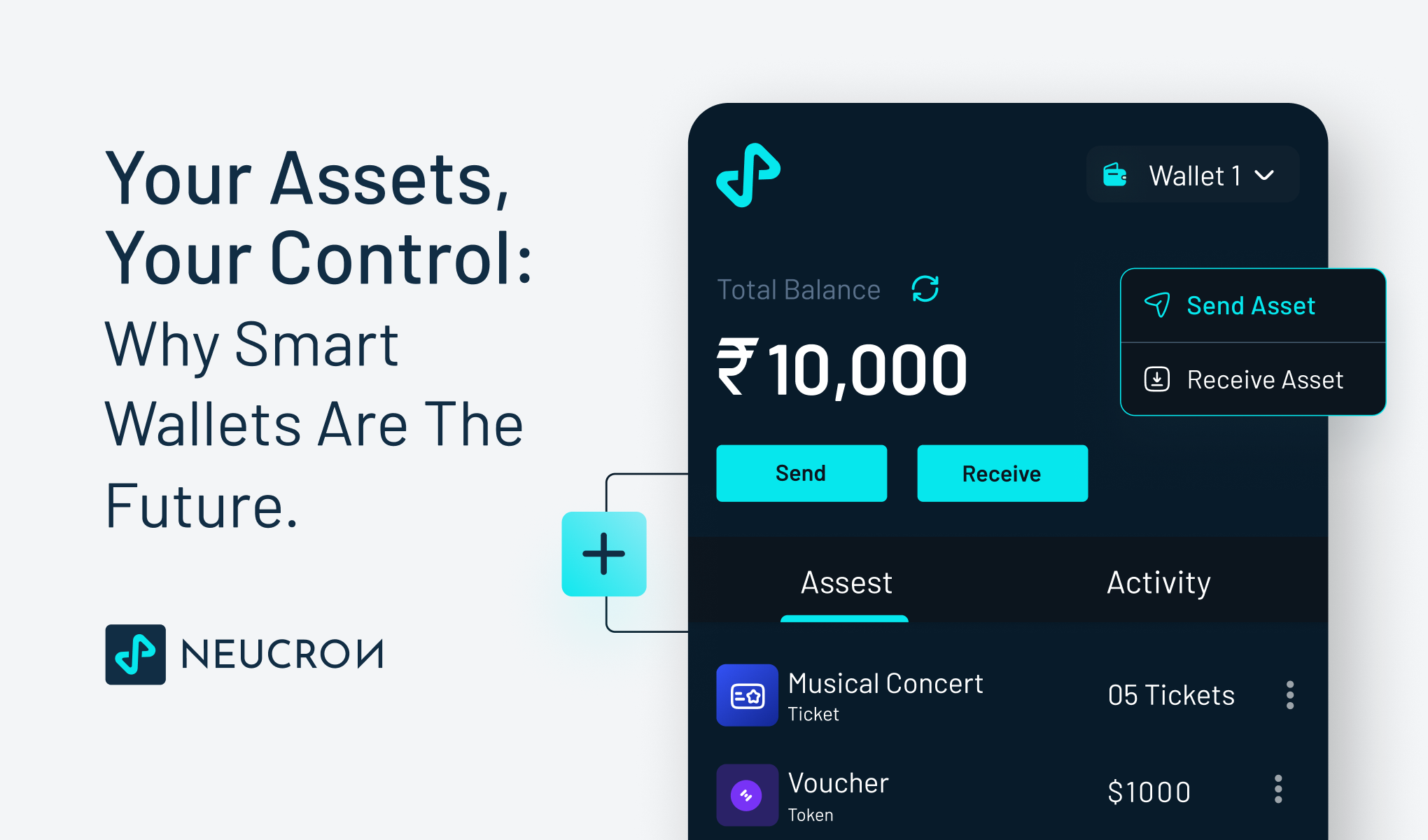Amid the technological progression, the concept of wallets is undergoing a remarkable transformation. From traditional physical wallets holding cash, credit cards, and identification to digital wallets managing numerous digital assets, the shift is monumental.
In 2021, the worldwide market size for smart wallets stood at $253.89 million. The same is expected to reach up to $400.28 million by 2028. It exhibits a CAGR of 6.27% during the forecast period from 2022 to 2028.
The credit for the emergence of smart wallets goes to the blockchain and artificial intelligence (AI). This innovative approach simplifies managing and interacting with our most valuable possessions. In this blog, we will explore the role of smart wallets as the central hubs of our daily lives.
The Evolution from Physical to Digital Wallets
Physical wallets served as containers for cash, credit cards, business cards, tickets, coupons, coins, identity cards, and keys. These tangible artifacts represented our identity and allowed us to conduct daily transactions.
However, as technology advanced, traditional wallets found a new home in the digital space. As of 2022, the global count of digital wallet users reached 3.4 billion, constituting 42.6% of the total world population.
Before digital wallets, we used to sign into various applications and websites through our email addresses. However, the landscape is rapidly changing with the rise of Web3-powered digital wallets. It lets users sign in to apps and websites using their digital wallets, wallet addresses, or paymails.
The Wide-Ranging Role of Smart Wallets
Smart wallets, the next frontier in wallet evolution, are becoming the new hotcake in the segment. They can manage diversified elements like digital identity, data, money, blockchain-based assets, tokenized credits, digital coupons, and smart home and vehicle keys.
Also known as non-custodial wallets, smart wallets are controlled by smart contracts. It helps facilitate transaction batching, multi-signature, signing into your accounts with a Web3 identity, and recovery sans a seed phrase.
Integration with Smart Homes and Vehicles
Smart homes and vehicles can be easily connected to digital wallets. These intelligent devices are not just controlled by the wallet; they are an integral part of its ecosystem. Keys, once physical objects jingling in our pockets, can now be securely stored within the digital confines of our smart wallets.
Imagine turning off or on the lights in your home with a simple tap on your digital wallet. Since 300 million smart homes are assessed to exist globally, smart wallets offer convenience and access to interconnected living.
The Advent of Smart Assets and Trusted Agents
Smart wallets are evolving to hold smart assets based on blockchain technology. These smart assets encompass a variety of blockchain-enabled asset records, ranging from digital identity to programmable money.
A defining feature of smart wallets is the inclusion of trusted agents. Acting as wallet managers, these agents have an intimate understanding of the user's preferences and behaviors. By representing the user in transactions, these trusted agents execute transactions without any hassle.
Trusted Intelligence: Where Blockchain meets AI
Smart wallets leverage these smart agents to facilitate automated and programmable transactions on the blockchain. Blockchain technology ensures the security and immutability of transactions, while AI enhances the adaptability and intelligence of the wallet.
Programmable transactions add another layer of sophistication to smart wallets. Users can define specific conditions under which transactions occur, providing a high degree of customization and control over the AI wallet agent.
What are the Unique Benefits of Using a Smart Wallet?
- Interoperability: Many smart wallets are designed to be interoperable with different blockchain networks and protocols. It allows users to manage assets across various platforms and ecosystems without being confined to a specific blockchain.
- Multi-Asset Management: Smart wallets support a diverse range of digital assets, including cryptocurrencies, tokenized assets, NFTs, smart contracts, and more. Thus, wide-ranging assets can be managed within a single wallet only.
- Access Control: Smart wallets offer enhanced access control mechanisms. Users can define permission levels and access rights for different transactions, providing an additional layer of security and control over their digital assets.
- Integration with IoT Devices: Some smart wallets extend their functionality to integrate with Internet of Things (IoT) devices. It assists users to control and manage smart homes, vehicles, and other IoT-enabled devices directly from their wallets.
- Participation in Decentralized Finance (DeFi): Smart wallets enable users to participate in decentralized finance activities, including lending, borrowing, staking, and yield farming. Users can directly engage in these financial activities from their wallets without traditional financial intermediaries.
- Global Accessibility: Digital wallets are not bound by geographical constraints. You can access and manage your assets from anywhere worldwide with an internet connection.
The Final Words
The journey of wallets, shifting from physical to digital and then into smart wallets, is a testament to the dynamic technological innovations. Smart wallets, equipped with blockchain-based assets and trusted agents, are shaping the future of personal finance and identity management.
Neucron smart wallet offers seamless asset integration, automated transactions, and programmable features. Embrace this digital transformation and manage your valuable assets in a more interconnected, secure, and convenient way. Book a demo now!
References
https://introspectivemarketresearch.com/reports/smart-wallet-market/
https://dataintelo.com/report/global-smart-wallet-market/
https://nexo.com/blog/what-is-a-smart-wallet
https://capitaloneshopping.com/research/digital-wallet-statistics

